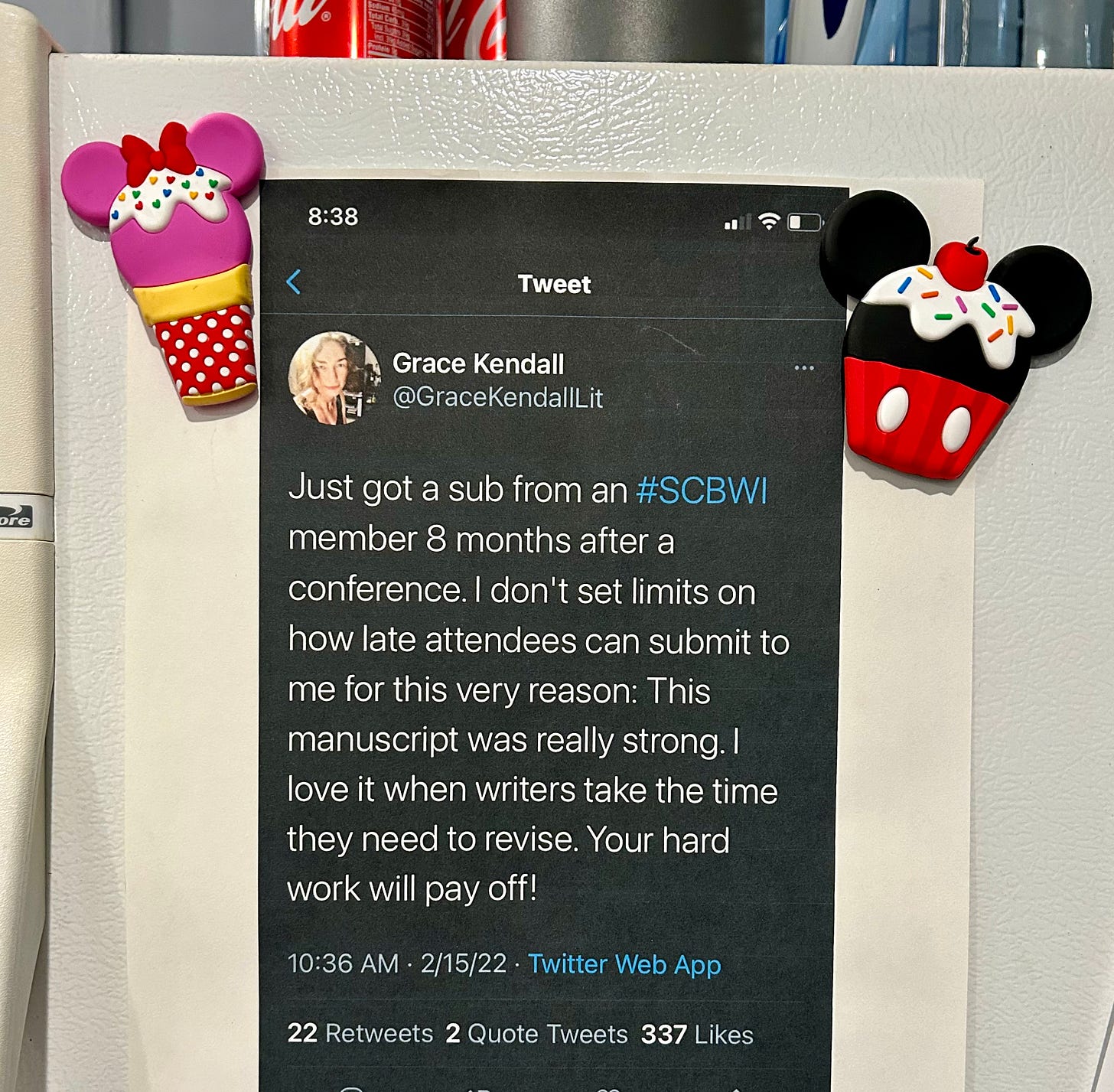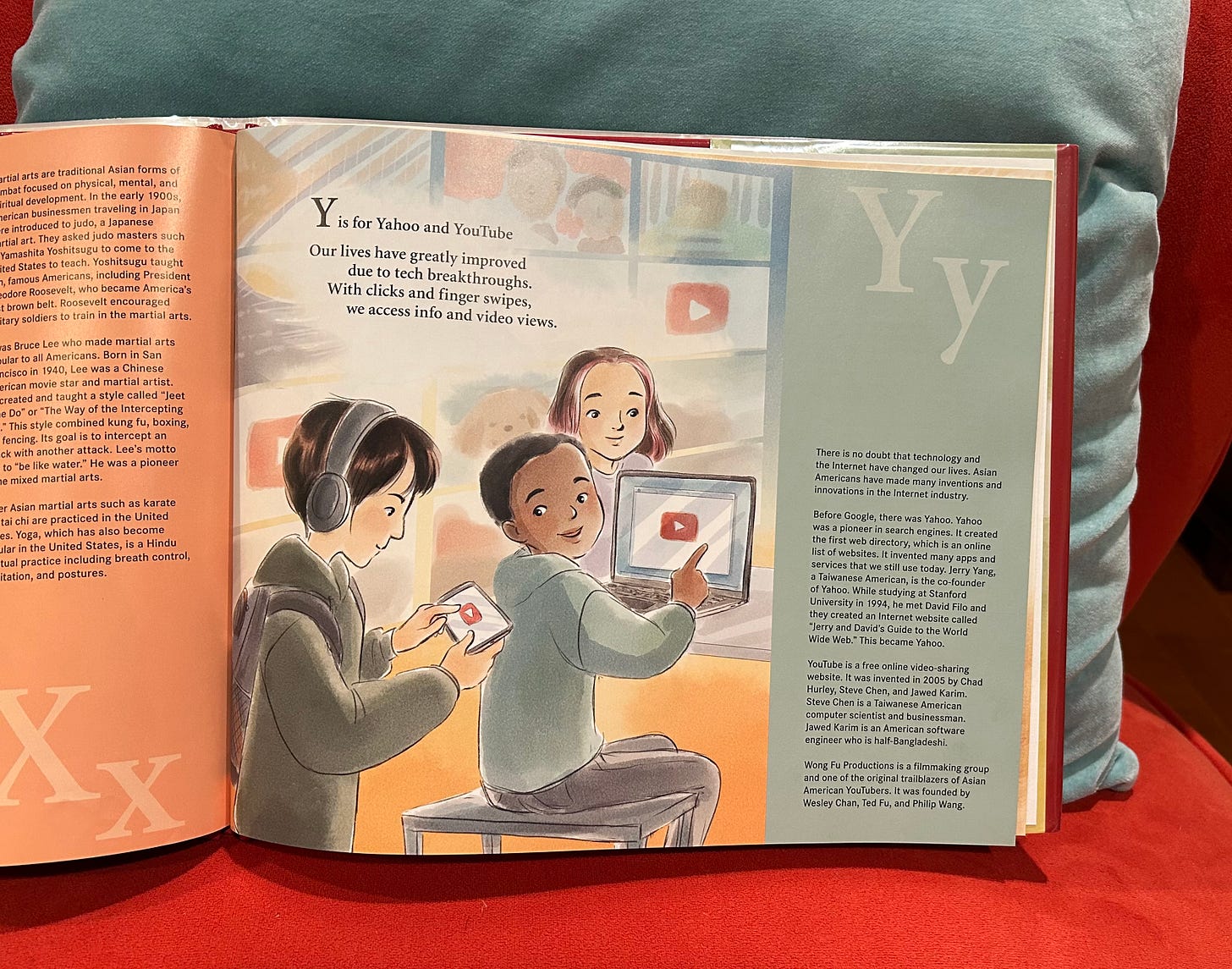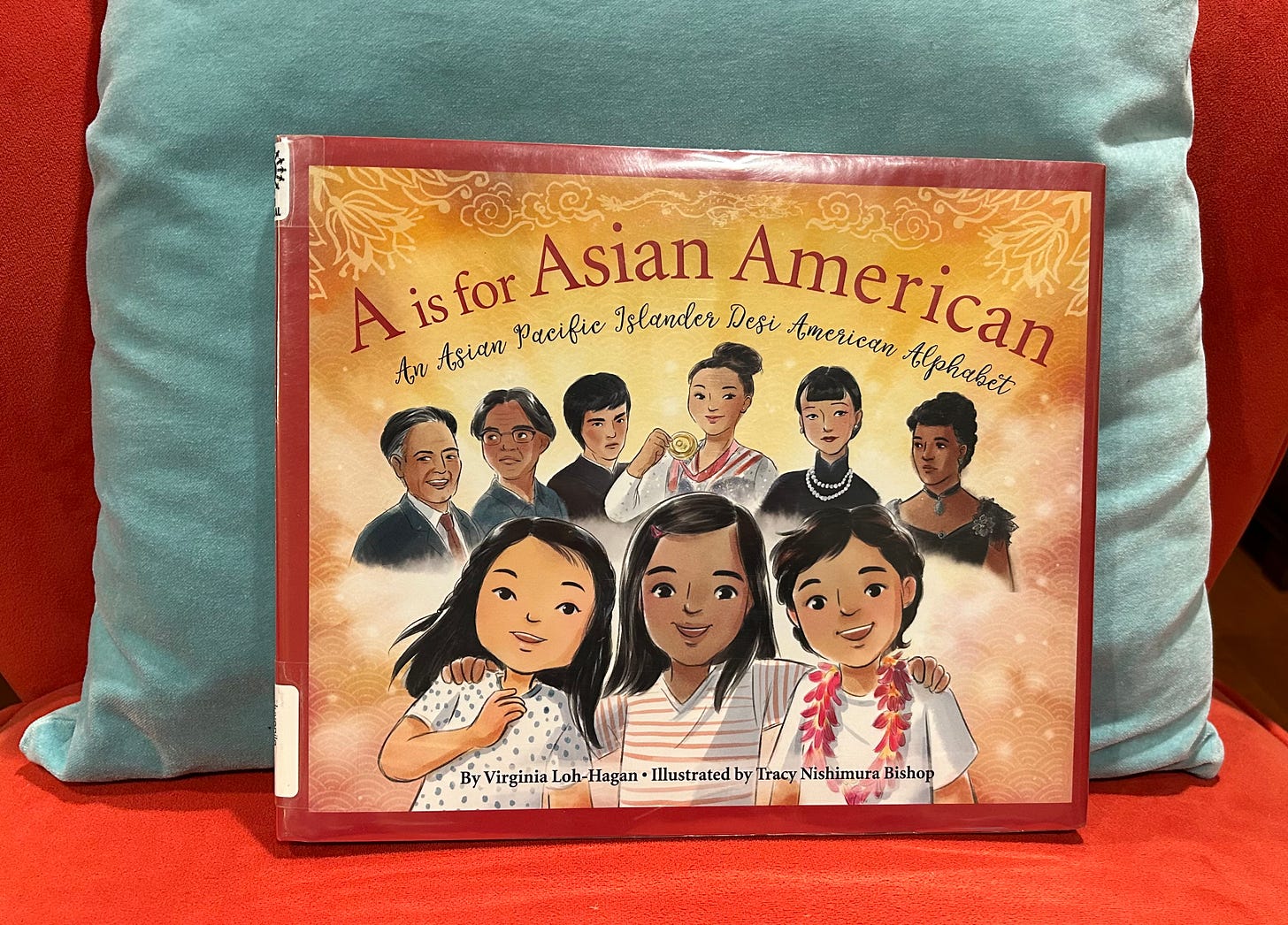I Can Actually Write a Post with That Title!
(This is the long version, so I’ll be breaking it into two parts.) I have always wanted a literary agent. You can read about what an agent is in How I Became a Stalker.
In January of 2012 I submitted a story to an editor. That was the first time I tried to break into the industry. In 2013 I joined the 12x12 community and sent stories to many agents that year. From 2015-2016 I attended writing conferences and retreats and continued to send work and participate in an occasional Twitter pitch contest. Were my stories ready? Nope. Did I know that? Nope. Everyone does it. At that point I had collected 24 rejections. And then I stopped. Because that’s when I realized that I needed to focus on my craft. So I did.
For six years I learned more about character development, pacing, tension, language, layers, themes, and through-lines. I wrote and revised close to 20 different stories, spending more time on the ones I thought most marketable at the moment. It took a long time finessing these stories until finally, I felt ready.
In February 2022 I started querying agents in earnest, in batches so I always had about 10 queries out at a time. I sent a certain story to 24 people that year, and I received several champagne rejections, which felt so promising. I even printed out a tweet that an editor wrote about my story and stuck it on our fridge for motivation.

While querying that one manuscript, I really worked hard to polish five stories that showed my range in writing subjects and styles: cultural, humorous, lyrical, conceptual. My goal was to start querying again after these stories were solid. One story in particular stood out to my critique groups as the one to send next.
I had written it in an non-traditional format, so it felt fresh enough to stand out for that format, plus had a universal theme to appeal to wide audiences, and it embedded cultural references as well. Did someone say layers?? It was exciting to lead with this story in 2024. But because of its unique format, I knew agents would either get it or not. And their responses reflected that—lots of generic passes came my way. But at the same time, it hooked agents enough to request more work from me.
By the end of the year, four agents had additional work of mine, and I kept my fingers crossed that one of them would want to talk: the call. At this point of the agent search, I felt really great. I hooked FOUR agents! In my mind, I kept telling myself, someone’s gonna bite. This is the time for me. It had taken only TWELVE years since I started sending out my work. That’s where I ended up in December 2023.
Next week in Part 2, we’ll pick up from here. Have you ever wanted something for so long and then when you looked back, you didn’t realize how much time has passed?
Book Report: A IS FOR ASIAN AMERICAN, AN ASIAN PACIFIC ISLANDER DESI AMERICAN ALPHABET
Written by Virginia Loh-Hagan
Illustrated by Tracy Nishimura Bishop
It’s the start of Asian American and Native Hawaiian/Pacific Islander Heritage Month (yes, it was renamed a couple years ago), and while I know it is important that we celebrate these months for recognition and awareness, I believe that these stories should be celebrated every single day, all year long.
In honor of this, I wanted to review a book that serves as a wonderful introduction to the cultures and contributions from Asian Pacific Islander Desi Americans, which is the term the author Virginia uses in her book. Besides having the structure of an ABC book, what I most love about this book is that there is a verse for each letter and a sidebar that includes so much information. This book is truly one from which readers can learn, and since many of these topics are not always covered in our education, this book serves as a valuable resource to explain both historical hardships and triumphs. I also appreciate the way cultural traditions are included, such as etiquette and the importance of family gatherings and respecting ancestors. Virginia also highlights the way Japanese Anime and South Korean pop culture have impacted contemporary society. Tracy’s art feels vibrant and dynamic, and she includes many portraits of famous APIDAs. My favorite parts of the book are the start and end, because the first pages showcase a timeline of milestones in immigration, social justice, innovation, and pop culture, and these topics are woven throughout this ABC book. To wrap up the book, there are ten activity ideas to acknowledge Filipinx American History Month in October and AANHPI Heritage Month in May, so it’s a built-in teacher resource.
Themes: immigration, civil rights, innovation, cultural identity and pride, history
Discussion Ideas:
Why is it important to recognize the different ethnicities within the Asian American umbrella term?
Discuss three ways APIDAs have impacted your life today.
Mentor Text For:
writing about history
ABC book format
poetry: quatrains
non-fiction text features: sidebar, glossary, timeline, back matter, author’s note
Buy this book and others on my curated list at Bookshop!
Disclosure: I am an affiliate of Bookshop.org and will earn a commission if you click through and make a purchase.

Weekly Progress Report
This is a section for “stuff I did” that relates to my writing career. I believe in celebrating all wins, big and small alike.
officially withdrew submissions from agents (and received a lovely note of congrats from one)
edited a manuscript
compiled information for my agent about past submissions, submission opportunities, and industry partners I will be meeting
attended an SCBWI Town Hall meeting via Zoom
emailed feedback about agenda topics for an upcoming writing conference planning meeting that I will miss
Sending you courage and grace in all you choose to do,
Susan



Congratulations! Can't wait to find out who your agent is. I tried PBs for a couple of years, but I gave up when I realized how much work they require. Now I'm querying my new novel. One thing I learned during those two years is that great ideas for PBs are a dime a dozen, but implementation is what separates the published from the unpublished.